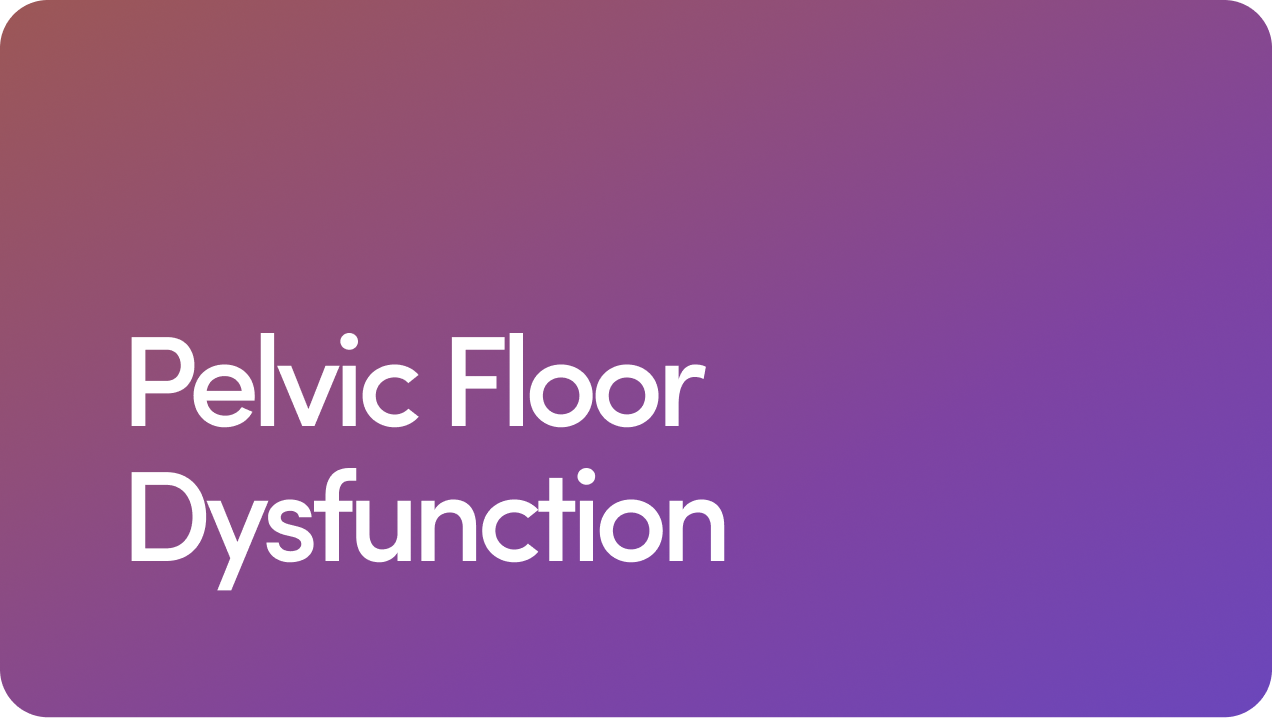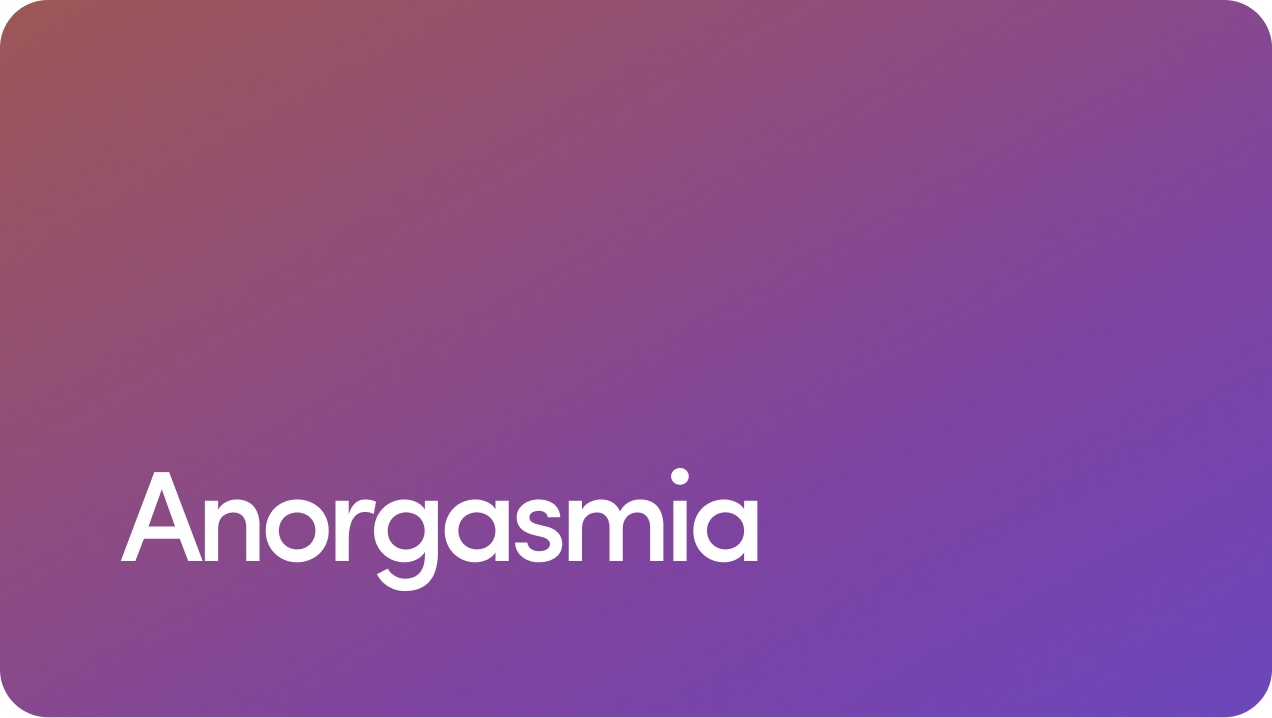Content
Your sex life, your way
Testicular Pain After Sex: Potential Causes and What Can Be Done

Why do my balls hurt after sex? You’re not the first guy to wonder (or Google) this.
Experiencing testicular discomfort after sexual activity isn’t typical, but it usually isn’t a sign of a serious underlying condition. Your testicles are tender structures filled with blood vessels and other tissues that can be easily damaged or irritated, especially during vigorous intercourse.
It’s a good idea to see a healthcare provider if you experience persistent or severe pain. However, mild pain that goes away by itself likely isn’t a cause for concern.
Learn more about why your testicles may hurt after sex and how to manage your discomfort.
Content
Why Do My Testicles Hurt After Sex?
Several factors can contribute to testicular pain after ejaculation, ranging from mild, temporary conditions to more serious medical concerns. Below are some common causes of testicle pain after sex.
Epididymal Hypertension ("Blue Balls")
Your epididymis is a tightly coiled tube attached to each of your testicles. It’s where sperm finish maturing.
Epididymal hypertension (or ”blue balls”) is high blood pressure in the scrotum following sexual activity that doesn’t end in ejaculation. It’s thought to occur from the slow drainage of blood after sexual arousal. If you ejaculate after getting aroused, the blood would drain quickly.
Many men describe this condition as a dull ache or discomfort. While not dangerous, it can be uncomfortable for some.
In February 2024, researchers did a literature review searching medical databases for the terms ”blue balls” and ”epididymal hypertension.” They only came across two articles using the terms and two comical letters to the editor in response. The point is, more research is needed.
Psychogenic Pain
Psychogenic pain is pain with a psychological origin (versus a physical problem with your testicles). There are many reasons psychogenic pain could happen, including:
Relationship problems
Stress
Depression and anxiety
Emotional trauma
In a 2022 study, researchers surveyed men with varying degrees of pelvic pain. Those with pelvic pain reported higher levels of:
Catastrophizing (fixating on the worst possible outcome)
Premature ejaculation (PE)
Explore premature ejaculation causes and treatments in our guide.
Prostatitis
Prostatitis is inflammation of the prostate gland, often caused by bacterial infection. It’s the most common urinary tract problem for men under 50 and may show up with a urinary tract infection.
Symptoms of prostatitis may include:
Pain during or after ejaculation
Persistent discomfort in the lower abdomen
Frequent urination
Burning during urination
Fever and chills with bacterial infection
Pain when ejaculating is a potential symptom of prostatitis. Though your prostate is located below your bladder, you might feel pain throughout your pelvis, in your genitals, or even in your scrotum.
Orchitis
Orchitis is inflammation of one or both testicles. It’s often caused by infections like mumps, rubella, or sexually transmitted infections (STIs).
Symptoms include testicular:
Swelling
Tenderness
Pain
Orchitis pain might be worse after sexual activity or urination.
Epididymitis
Inflammation in the epididymis can result in sharp or throbbing pain when you ejaculate. Epididymitis is most often caused by bacterial infections passed through sexual activity.
Chlamydia and gonorrhea make up about half of epididymitis cases in young males. In older men, E. coli is a common cause.
Testicular Torsion
Testicular torsion is a medical emergency. It’s when the spermatic cord that carries sperm outside the testicle twists around itself, cutting off the testicle’s blood supply.
Symptoms include sudden and severe:
Pain in the scrotum
Swelling
Nausea and vomiting
Unusual testicle placement
Very rarely, testicular torsion can happen after vigorous sexual activity. Rapid growth during puberty, testicular injury, and cold temperatures might contribute as well.
Trauma or Overexertion
Excessive or rough sexual activity can strain the muscles and tissues around the groin, causing temporary pain or tenderness in the testicles.
Trauma can lead to erectile dysfunction (ED) if the nerves or blood vessels in your penis are damaged.
Varicocele
A varicocele is an enlargement of the veins within the scrotum. Increased blood flow during sexual activity and movement during sex can exacerbate discomfort, causing a dull ache or heaviness in the testicles.
Cases of ruptured varicocele during sex have been reported.
Hydrocele
A hydrocele is a fluid accumulation around your testicle. While it’s typically painless, increased pressure during sex and arousal can lead to discomfort.
A hydrocele can develop due to medical conditions including:
Congenital abnormalities (birth defects)
Infections
Injury
Cancer
The increased pressure could make your testicles hurt after sex (or during).
Home Remedies for Testicular Pain
For mild or occasional pain, home remedies may be enough to provide pain relief. If you aren’t sure what’s making your testicles hurt after sex, it’s a good idea to see a healthcare expert to rule out serious conditions.
Rest and Ice Packs
Applying a cold pack to your scrotum can help reduce inflammation and alleviate discomfort. It’s best to wrap an ice pack in a cloth to avoid direct skin contact.
Over-the-Counter Pain Relievers
Nonsteroidal anti-inflammatory drugs (NSAIDs), such as ibuprofen (Advil®) or acetaminophen (Tylenol®), can help you manage pain and reduce swelling.
Warm Baths
A warm bath can relax tense muscles and improve blood flow to your pelvic region, providing relief from mild discomfort.
Staying Hydrated
Proper hydration can help prevent issues that can cause pelvic and testicular pain, like kidney stones or urinary tract infections.
Ejaculation
If your pain is due to ”blue balls,” ejaculating may help relieve the pressure and discomfort.
When to See a Healthcare Provider
While occasional mild discomfort may not be a cause for concern, certain symptoms warrant immediate medical attention. These include:
Severe pain. Sudden, intense pain in one or both testicles may indicate testicular torsion or trauma.
Significant swelling. Significant swelling, redness, or warmth of the scrotum may signal infection or inflammation.
Fever or chills. A fever or chills could point to an infection that requires antibiotics.
Nausea or vomiting. These symptoms, along with testicular pain, could be signs of torsion or another serious issue.
It’s also a good idea to see your healthcare provider if you have:
Pain that lasts beyond a few days
Discomfort that occurs after every sexual encounter
Pain associated with urinary symptoms, like burning or difficulty peeing
A lump, asymmetric, or noticeable change in your testicles (to rule out testicular cancer)
A medical professional can review your symptoms, offer a diagnosis, and go over treatment options.
Diagnosing Testicular Pain
When you visit a medical provider, they may perform the following tests to figure out the cause of your pain:
Clinical exam. The diagnostic process often starts with a review of your symptoms, personal medical history, and family health history. Your provider will also do a physical exam to check your scrotum for swelling, tenderness, or lumps.
Urine and blood tests. Urine and blood tests can help your provider identify inflammation, STIs, and other infections.
Ultrasound Imaging. A scrotal ultrasound offers detailed images to assess blood flow and identify abnormalities like torsion, varicoceles, or fluid buildup.
Treatment Options
The best treatment for testicular pain depends on its underlying cause.
Epididymal Hypertension Treatment
Epididymal hypertension usually resolves itself over minutes to hours. It may be relieved with ejaculation from masturbation or sex with another person if you have a consenting partner.
For some men who experience severe pain, the best management tool may be prevention. Whenever possible, it’s best to avoid sexual activity that doesn’t end in ejaculation, although this may not always be under your control.
Psychogenic Pain Treatment
Treatment options for psychogenic pain might include:
Psychological therapies
Medications, such as antidepressants
Physical therapy
Stress management
Patient education and support groups may also be helpful.
Prostatitis Treatment
Treatment for prostatitis can include:
Antibiotics for bacterial infections
Pain medications
Other medications like muscle relaxants or neuromodulators
Warm baths
Heating your abdomen to reduce pain
Stress management techniques might help here, too.
Orchitis Treatment
Orchitis may be treated with:
Medications to reduce fever (antipyretics)
Pain-killing medications
Hot and cold packs
Antibiotics
In some cases, a healthcare provider might recommend short-term bed rest.
Epididymitis Treatment
Treatment for epididymitis often includes antibiotics to kill bacteria. Your provider may give you an antibiotic to kill the most common causes of bacteria.
If these antibiotics aren’t effective, your provider may test you to see which type of bacteria you have and prescribe more specific treatment.
Icing your testicles may help reduce pain and inflammation.
Testicular Torsion Treatment
Surgery is usually needed to treat testicular torsion. The earlier the operation is performed, the better your chances of saving your testicle.
Trauma or Overexertion Treatment
Traumatic injury to the testicles typically heals by itself without any particular treatment. While waiting for your testicles to heal, avoid sexual activity — or at least the type of activity that caused the injury in the first place.
Severe pain might be a sign of a ruptured testicle. A ruptured testicle is a rare but serious injury, and needs immediate medical attention and surgery.
Varicocele or Hydrocele Treatment
These conditions can be managed with supportive treatment, like minimizing trauma to the testicles. Severe cases are sometimes surgically corrected.
Preventing Testicular Pain After Sex
Though not all causes of testicular pain are preventable, here’s what can help reduce your risk:
Practice safe sex. Using condoms and getting regular STI screenings are good safe sex practices that can lower your risk of infections.
Avoid overly vigorous sex. Engaging in vigorous sexual activity may lead to traumatic injury.
Stay hydrated and maintain a healthy diet. Good hydration and nutrition can help prevent conditions like kidney stones and urinary infections.
Manage stress. Chronic stress and tension can contribute to psychogenic pelvic pain and discomfort.
See your healthcare provider if persistent pain becomes a problem for your daily life (or sex life). Your provider might refer you to a healthcare professional who specializes in urology.
Here are answers to some frequently asked questions by people who have pain in their testicles after sex.
Why Do My Balls Hurt When I Edge?
Edging is when you repeatedly increase sexual stimulation and stop before orgasm to build your sensitivity. Pain during edging might be because of epididymal hypertension, where the blood pressure in your testicles stays elevated for an extended period.
Why Does My Left Testicle Hurt When I Ejaculate?
Your body isn’t totally symmetrical. Pain in one testicle can happen for many reasons, such as epididymal hypertension or testicular torsion.
Why Does My Right Testicle Hurt When I Ejaculate?
Your right testicle may hurt for the same reasons as your left testicle. See possible explanations above.
Balls Sore After Sex — Is It Normal?
It’s not normal for your testicles to hurt after sex — but it isn’t uncommon, either. If the pain is mild and goes away shortly, it’s unlikely a cause for concern.
Can Ejaculating Too Much Cause Testicular Pain?
Ejaculating frequently might cause repeated trauma to your testicles that leads to testicular pain, especially if you’re having vigorous or frequent intercourse.
Why Do I Have Pain After Ejaculating Twice?
You might have pain after ejaculating twice for many reasons. But one of the most common explanations is epididymal hypertension.
Why do testicles hurt after sex sometimes? Here’s the TL;DR:
Testicular pain after sex can stem from various causes, ranging from mild conditions like ”blue balls” to more serious concerns like infections or torsion.
Treatments also vary from over-the-counter pain relievers and home remedies that reduce swelling to prescription medication and even surgery.
Get in touch with a medical provider for a diagnosis if you’re experiencing testicle pain after ejaculation. They can help you figure out the potential cause of testicular pain after sex and go over treatment options.
Mild pain that goes away shortly isn’t likely a cause for concern. However, if you experience persistent or severe pain, you’re wise to consult a healthcare provider for evaluation and treatment.
If you’re interested in exploring treatment options for erectile dysfunction or premature ejaculation, see what’s available through our sexual health platform.
10 Sources
- Arif C, et al. (2018). Two case reports of varicocele rupture during sexual intercourse and review of the literature. https://pmc.ncbi.nlm.nih.gov/articles/PMC6311255/
- Azmat CE, et al. (2023). Orchitis. https://www.ncbi.nlm.nih.gov/books/NBK553165/
- Edvinsson M, et al. (2022). Male pelvic pain: the role of psychological factors and sexual dysfunction in a young sample. https://www.degruyter.com/document/doi/10.1515/sjpain-2021-0221/html
- Essien F, et al. (2022). Testicular rupture: the other nutcracker syndrome. https://pmc.ncbi.nlm.nih.gov/articles/PMC8842106/
- Huzaifa M, et al. (2023). Hydrocele. https://www.ncbi.nlm.nih.gov/books/NBK559125/
- Jones JM, et al. (2024). Does blue balls exist, and why should we care?. https://academic.oup.com/jsm/article-abstract/21/2/88/7591675
- Levang S, et al. (2023). ”Blue balls” and sexual coercion: a survey study of genitopelvic pain after sexual arousal without orgasm and its implications for sexual advances. https://pmc.ncbi.nlm.nih.gov/articles/PMC10155057/
- National Institute of Diabetes and Digestive and Kidney Diseases (NIDDK). (2014). Prostatitis: inflammation of the prostate. https://www.niddk.nih.gov/health-information/urologic-diseases/prostate-problems/prostatitis-inflammation-prostate
- Rupp TJ, et al. (2023). Epididymitis. https://www.ncbi.nlm.nih.gov/books/NBK430814/
- Velasquez J, et al. (2023). Acute scrotal pain. https://www.ncbi.nlm.nih.gov/books/NBK470335/
Editorial Standards
Hims & Hers has strict sourcing guidelines to ensure our content is accurate and current. We rely on peer-reviewed studies, academic research institutions, and medical associations. We strive to use primary sources and refrain from using tertiary references. See a mistake? Let us know at [email protected]!
This article is for informational purposes only and does not constitute medical advice. The information contained herein is not a substitute for and should never be relied upon for professional medical advice. Always talk to your doctor about the risks and benefits of any treatment. Learn more about our editorial standards here.

Kelly Brown MD, MBA
Dr. Kelly Brown is a board certified Urologist and fellowship trained in Andrology. She is an accomplished men’s health expert with a robust background in healthcare innovation, clinical medicine, and academic research. Dr. Brown was previously Medical Director of a male fertility startup where she lead strategy and design of their digital health platform, an innovative education and telehealth model for delivering expert male fertility care.
She completed her undergraduate studies at University of North Carolina at Chapel Hill (go Heels!) with a Bachelor of Science in Radiologic Science and a Minor in Chemistry. She took a position at University of California Los Angeles as a radiologic technologist in the department of Interventional Cardiology, further solidifying her passion for medicine. She also pursued the unique opportunity to lead departmental design and operational development at the Ronald Reagan UCLA Medical Center, sparking her passion for the business of healthcare.
Dr. Brown then went on to obtain her doctorate in medicine from the prestigious Northwestern University - Feinberg School of Medicine and Masters in Business Administration from Northwestern University - Kellogg School of Management, with a concentration in Healthcare Management. During her surgical residency in Urology at University of California San Francisco, she utilized her research year to focus on innovations in telemedicine and then served as chief resident with significant contributions to clinical quality improvement. Dr. Brown then completed her Andrology Fellowship at Medical College of Wisconsin, furthering her expertise in male fertility, microsurgery, and sexual function.
Her dedication to caring for patients with compassion, understanding, as well as a unique ability to make guys instantly comfortable discussing anything from sex to sperm makes her a renowned clinician. In addition, her passion for innovation in healthcare combined with her business acumen makes her a formidable leader in the field of men’s health.
Dr. Brown is an avid adventurer; summiting Mount Kilimanjaro in Tanzania (twice!) and hiking the incredible Torres del Paine Trek in Patagonia, Chile. She deeply appreciates new challenges and diverse cultures on her travels. She lives in Denver with her husband, two children, and beloved Bernese Mountain Dog. You can find Dr. Brown on LinkedIn for more information.
Education & Training
Andrology Fellowship, Medical College of Wisconsin
Urology Residency, University of California San Francisco
M.D. Northwestern University Feinberg School of MedicineB.S. in Radiologic Science, Chemistry Minor, University of North Carolina at Chapel Hill
Research
Published as Kelly Walker
Cowan, B, Walker, K., Rodgers, K., Agyemang, J. (2023). Hormonal Management Improves Semen Analysis Parameters in Men with Abnormal Concentration, Motility, and/or Morphology. Fertility and Sterility, Volume 118, Issue 5, e4. https://www.sciencedirect.com/journal/fertility-and-sterility/vol/120/issue/1/suppl/S
Walker, K., Gogoj, A., Honig, S., Sandlow, J. (2021). What’s New in Male Contraception? AUA Update Series, Volume 40. https://auau.auanet.org/content/update-series-2021-lesson-27-what%E2%80%99s-new-male-contraception
Walker, K., Shindel, A. (2019). AUA Erectile Dysfunction Guideline. AUA Update Series, Volume 38. https://auau.auanet.org/content/course-307
Walker, K., Ramstein, J., & Smith, J. (2019). Regret Regarding Fertility Preservation Decisions Among Male Cancer Patients. The Journal of Urology, 201(Supplement 4), e680-e681. https://www.auajournals.org/doi/10.1097/01.JU.0000556300.18991.8e
Walker, K., & Smith, J. (2019). Feasibility Study of Video Telehealth Clinic Visits in Urology. The Journal of Urology, 201(Supplement 4), e545-e545. https://www.auajournals.org/doi/10.1097/01.JU.0000556071.60611.37
Related Articles
Related Conditions
 Erectile Dysfunction
Erectile Dysfunction
 Premature Ejaculation
Premature Ejaculation
 Low Testosterone
Low Testosterone
 Retrograde Ejaculation
Retrograde Ejaculation
 Pelvic Floor Dysfunction
Pelvic Floor Dysfunction
 Anorgasmia
Anorgasmia